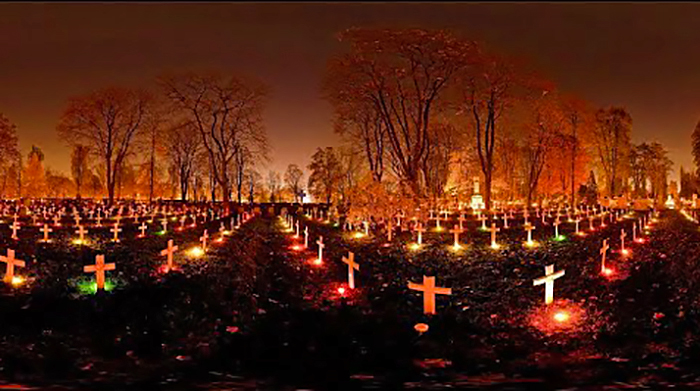
Why pray for the dead? Does this make any sense? What possible difference can our prayers make to a person once they have died? Fr. Rolheiser writes that we pray for the dead for the same reason we pray for anything; we feel the need, which is reason enough. Moreover, the objections raised against praying for the dead are just as quickly raised against all prayers of petition. God already knows every one of our desires, every one of our sins, and all of our goodwill. So why remind God of these? Because prayer builds us up and changes us, not God. We pray for the dead to comfort ourselves, to stir and celebrate our own faith, and to assuage our own guilt about our less-than-perfect relationship with the one who has died. In praying for the dead, we do two things: We highlight our faith in the power of God, and we hold up the life of the person who has died so as to let God take care of things and wash things clean. That is one of the purposes of a funeral liturgy: to clearly put the dead person and our relationship with them into God’s hands. Most importantly, we pray for the dead because we believe that we are still in vital communion with them. There is, death notwithstanding, still a vital flow of life between them and us. Love, presence, and communication reach even through death. We and they can still feel each other, know each other, love each other, console each other, and influence each other. Our lives are still joined. Hence, we pray for the dead to remain in contact with them. Just as we can hold someone’s hand as they are dying, and this can be an immense consolation to them and us, so too, figuratively but really, we can hold that person’s hand through and beyond death. Within Roman Catholic theology, we have believed that our prayers help release this person from purgatory. Purgatory, properly understood, is not a punishment for any imperfection nor indeed a place distinct from heaven. The pains of purgatory are the pains of adjusting to a new life (which includes the pain of letting go of this one) and the pains of being embraced by perfect love when we ourselves are far from perfect. By praying for the dead, we support them in their pain of adjustment, adjustment to a new life, and to living in full light. Purgation eventually leads to ecstasy, but the birth that produces that ecstasy requires first a series of painful deaths. Thus, just as we tried to hold their hands as they died, so now, in praying for loved ones who have died, we continue to hold their hands, and they ours, beyond the chasm of death itself.
